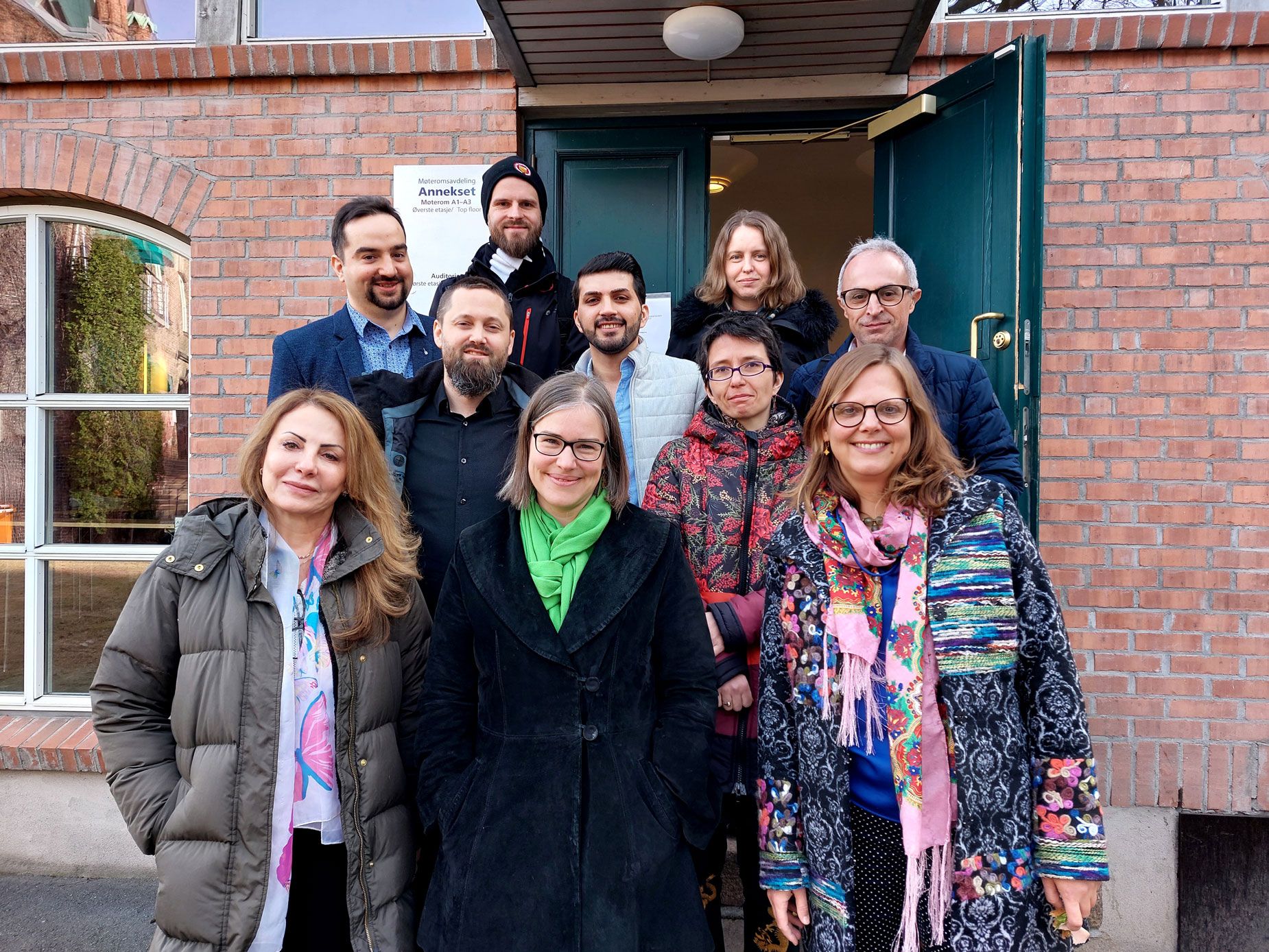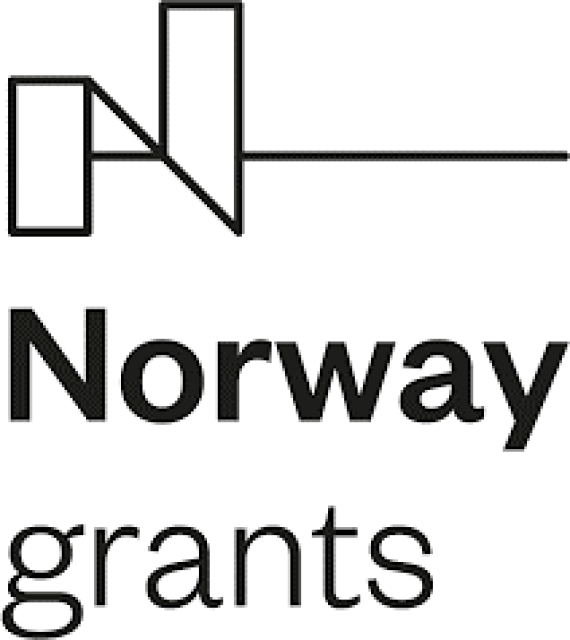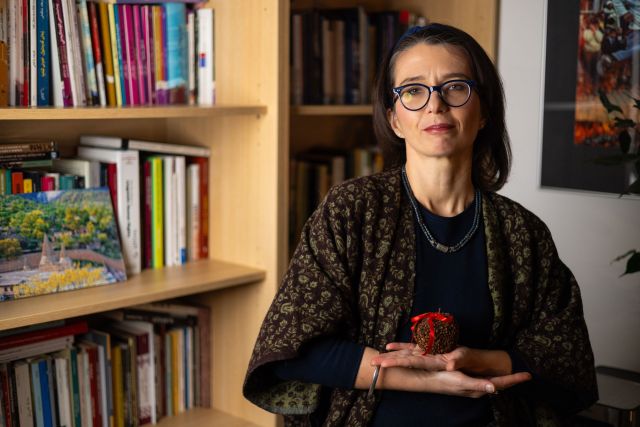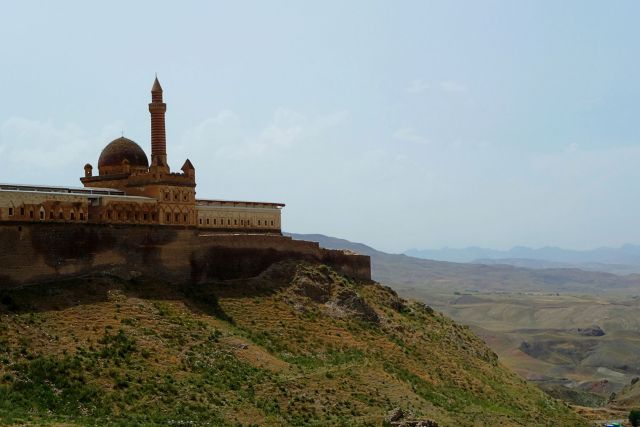Principal Investigator
:
Dr hab. Joanna Bocheńska
Jagiellonian University
Panel: HS2
Funding scheme
: GRIEG
announced on
17 June 2019
This interdisciplinary research project, which combined culture studies, anthropology, gender studies and sociology, analysed how the Kurds, a nation without state structures and state institutions, have operated outside such structures, independently building social and cultural institutions of their own in their respective countries of citizenship. Over the last five years, the Kurdistan region, located in the heart of the Middle East and divided between four nation states (Iran, Iraq, Syria and Turkey), has experienced a series of profound transformations. Some brought hope and inspiration to the Kurds, while others meant that their rights were violated. Even though they often led to the relocation of entire communities and the destruction of many institutions, many new activists and organisations emerged both in the Kurdish homeland and across the diaspora.
 The team during a seminar at the Fafo Institute in Oslo in 2022.
Both internationally and locally, the Kurds are better known for their guerrilla struggle and violent confrontations than peaceful activism. The focus on violence, both in academia and in the media, has led to the relative invisibility of Kurdish social and cultural activism, even though such activism has profoundly transformed the Kurdish community from within. Despite the constraints put in place by state oppression, local cultural centres and women’s organisations, as well as individual actors, such as artists, writers and intellectuals, have all contributed to shaping new narratives and moral imaginations. Since the voice and the activism of women have been generally given short shrift, the goal of ALCITfem is to focus, precisely, on the role of women, as well as the moral ideas and narratives surrounding the social position of men and women. Our project relies on the concept of alternative citizenship to highlight that the Kurds have developed multiple alternative strategies of action (both political and non-political) that remain outside the sphere of state institutions and their structures.
The team during a seminar at the Fafo Institute in Oslo in 2022.
Both internationally and locally, the Kurds are better known for their guerrilla struggle and violent confrontations than peaceful activism. The focus on violence, both in academia and in the media, has led to the relative invisibility of Kurdish social and cultural activism, even though such activism has profoundly transformed the Kurdish community from within. Despite the constraints put in place by state oppression, local cultural centres and women’s organisations, as well as individual actors, such as artists, writers and intellectuals, have all contributed to shaping new narratives and moral imaginations. Since the voice and the activism of women have been generally given short shrift, the goal of ALCITfem is to focus, precisely, on the role of women, as well as the moral ideas and narratives surrounding the social position of men and women. Our project relies on the concept of alternative citizenship to highlight that the Kurds have developed multiple alternative strategies of action (both political and non-political) that remain outside the sphere of state institutions and their structures.
Within the framework of ALCITfem, team members, who spoke the necessary local languages, conducted research in the main centres of Kurdish activism both in Kurdistan and in the diaspora. Alternative citizenship was looked at through the prism of two mutually dependent spaces: activism initiated by women and its moral and cultural foundations. These research problems were investigated within the following four subject areas: 1) the representation of women in Kurdish culture and its role in shaping civic attitudes; 2) the covert activism of Kurdish women; 3) the shaping of gender roles in Kurdish families; and 4) eco-feminism. In this way, the project combined an interest in visible and hidden practices with an attention to the way in which activism was embedded in moral and cultural traditions. Alongside publishing our research results, we also organised several photo exhibitions in cooperation with the Museum of Asia and the Pacific in Warsaw and the Manggha Museum of Japanese Art and Technology in Kraków.
In terms of theory and methodology, the ALCITfem project, Activism And Its Moral and Cultural Foundation: Alternative Citizenship and Women’s Roles in Kurdistan and the Diaspora, combined the fields of social studies and the humanities through the cooperation of the following departments: the Section of Kurdish Studies at the Institute of Oriental Studies (Faculty of Philology) of the Jagiellonian University (PSK IO UJ, Kraków); the Centre for Gender Research (STK, Senter for Tverrfaglig Kjonnsforskning) at the University of Oslo (UiO); the Center for the Advanced Study of Population and Religion (CASPAR) at the Krakow University of Economics (UEK); the Fafo, Institute of Labor and Social Research in Oslo; and the Asia and Pacific Museum in Warsaw.

Project title: Activism and Its Moral and Cultural Foundations: Alternative Citizenship and Women’s Roles in Kurdistan and the Diaspora
Dr hab. Joanna Bocheńska
Associate Professor at the Institute of Oriental Studies (Department of Iranian Studies at the Jagiellonian University, Head of the Section of Kurdish Studies). She has coordinated several research projects devoted to Kurdish culture and society. She is the author of multiple articles, an editor of a book entitled Rediscovering Kurdistan’s Cultures and Identities: The Call of The Cricket, published by Palgrave Macmillan in 2018 and an acclaimed translator of Kurdish literature. Her interests centre on Kurdish cultural heritage and classical and contemporary literature. She is also an avid photographer: www.joannabochenska.com and editor of: www.kurdishstudies.pl.


